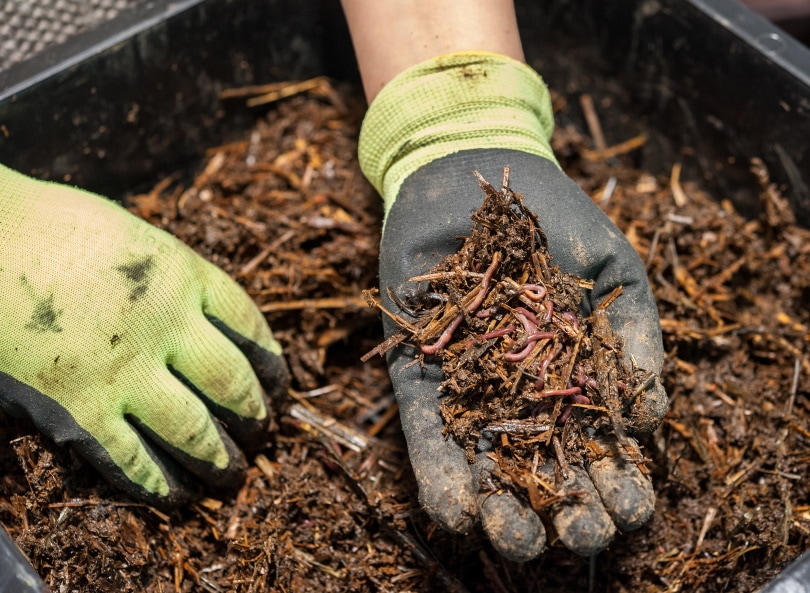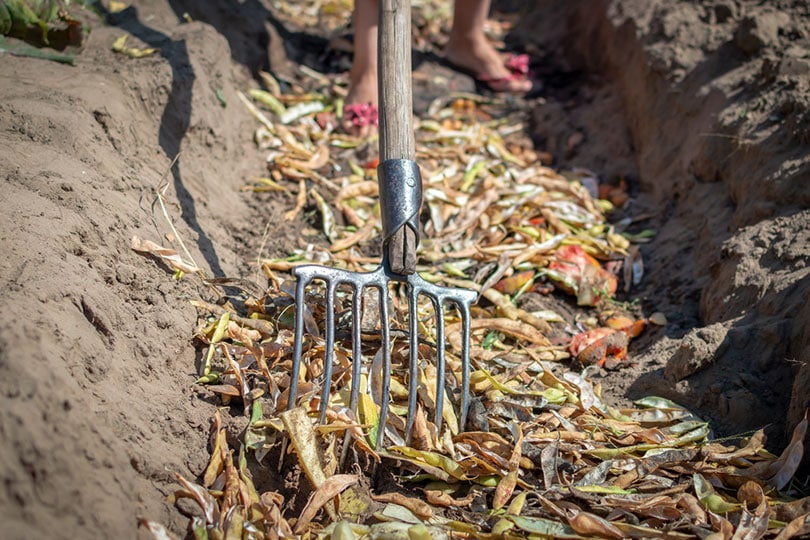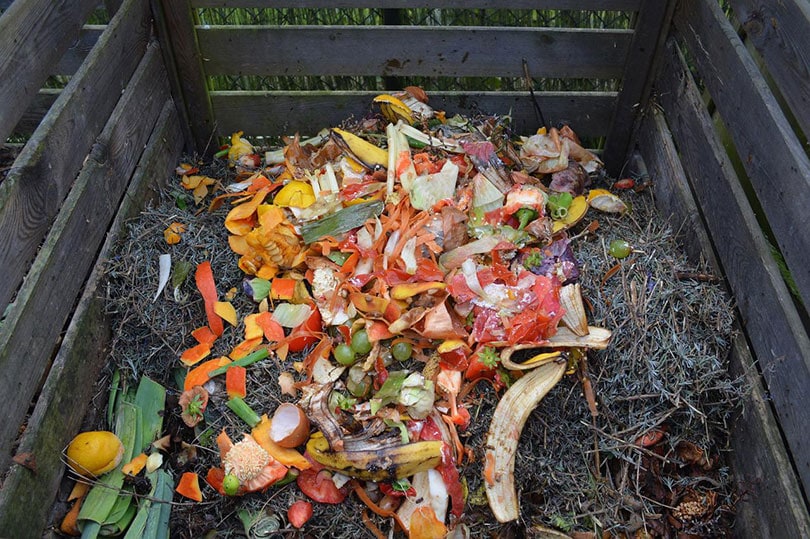Do You Need Worms to Compost? What You Need To Know!
-
Codee Chessher
- Last updated:

Compost requires a delicate balance of brown material, green material, and other natural elements. Many composters find their compost teeming with worms, fungi, and other life, but it’s fair to wonder whether you actually need worms. As it turns out, you don’t need worms to compost, but they’re very helpful for the chemical and physical decomposition that are key to the composting process.
In most outdoor compost bins or piles, worms will find their way into the compost, where they help break down the organic material within. Not only that, but they aerate the compost and mix it up for you, which is extremely helpful. Without worms, you’ll find yourself needing more regular aeration to achieve the same results.
Can I Add Worms to My Compost?
Yes, you can add worms to your compost, but it may not be necessary if your compost is outdoors. The decomposition within will attract worms as well as other bugs and fungi, which help aerate the soil and break down organic matter.
Indoor composting is a little trickier. Since there aren’t worms in your house, you may opt to buy or find worms to add to the compost. Indoor compost will break down without them, but they’ll accelerate decomposition and make your composting more efficient.
However, you can’t just add any old worms to compost. Not all worms like the conditions inside a compost pile, and if you add them, they’ll either die or wriggle their way out.
The best worms for compost are red wigglers, which subsist on a diet of food waste and rotting organic matter. Coincidentally, both of those are great for compost. Red wigglers can process half their body weight in matter per day, and they reproduce very quickly in most compost piles. They also tolerate the warm conditions inside compost, unlike some other types of worms.
Compost produced using worms like these is called vermicompost, and it’s very healthy for plant growth. Compost is often called “black gold” by gardeners because it’s highly beneficial when used as fertilizer.

What About Earthworms?
Most people probably think of earthworms when they think of worms, but earthworms aren’t all that helpful for compost. They dislike the hot temperatures and derive their nutrition from the soil content rather than the rotting organic matter. They do help aerate the compost and aren’t at all detrimental. In fact, you’ll likely find some regular old earthworms in an outdoor compost pile.
However, you shouldn’t purposely add earthworms to compost. At best, it’ll be marginally helpful, and at worst, they’ll simply burrow down into the soil or try to escape the pile. In extreme temperatures, they’ll simply die.
How Many Worms Should I Add to My Compost?
Whether you compost indoors or outdoors, adding worms like red wigglers will benefit your compost. Whether you find or buy them, you’re probably wondering just how many worms you need to add.
Ideally, you should add about 1 pound of worms (1,000 worms, give or take) per square foot of bin surface area. Alternatively, add 2 pounds of worms per 1 pound of food waste added to the compost on a regular basis. The worms will eat and reproduce until they reach a stable population.
You can’t add too many worms to a compost pile but don’t go overboard. Any excess worms will wriggle to the top or bottom to try and escape the crowded conditions, or they’ll die and become food for the remaining worms. Ironically, worms qualify as worm food!

What Not to Compost if You Use Worms
If you add worms to your compost, you should be aware of what not to add to the compost. Adding the wrong things to the compost will upset the delicate ecological balance within, possibly spoiling the whole bin.
- Large amounts of acidic fruit waste, like citrus rinds or scraps. Small amounts of citrus scraps are OK, but large amounts of acid can kill worms and upset the chemical balance of the compost.
- Large pieces of organic matter. Organic matter added to compost should be shredded into a fine consistency to help it break down in a timely manner. Worms will take too long to break down whole items that aren’t broken up.
- Too much onion, garlic, or leeks. These veggies are acidic, and acid has an inhibiting effect on the vital microorganisms that break down organic matter and produce compost. Small bits are fine, but large amounts shouldn’t be regularly added.
Conclusion
Worms are healthy for any compost pile, although red wigglers are perhaps the best type to deliberately add yourself. Worms rapidly break down food waste and other organic matter, aerate the soil, and produce great compost for veggie gardens. As long as you’re careful not to upset the conditions they like, worms will help you out a lot.
See also: Why Are There So Many Worms in My Yard (10 Likely Reasons)
Featured Image Credit: Federico Magonio, Shutterstock
Contents
